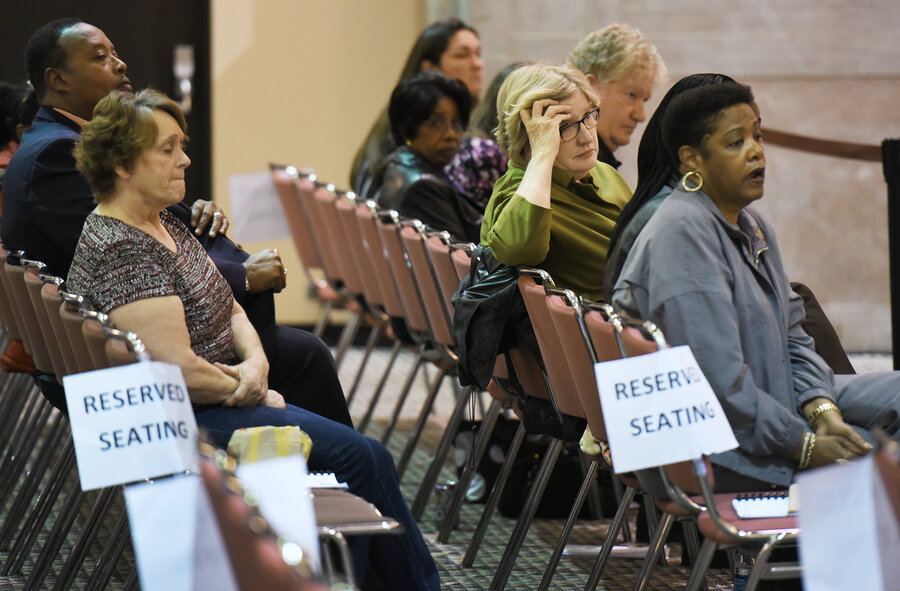Captain of doomed ship said 'clock is ticking' in final call
Loading...
The captain of the doomed freighter El Faro said in his final call for help that the "clock is ticking" as his ship took on water and lost propulsion.
Part of Capt. Michael Davidson's call was played Saturday in Jacksonville during a U.S. Coast Guard investigative hearing into the Oct. 1 sinking. All 33 aboard died when the ship sank in 15,000 feet of water near the Bahamas.
Davidson called the emergency operations center just after 7 a.m. the day the El Faro sank. He'd left a message minutes earlier with a company official, whom he couldn't reach, saying the ship had a "pretty good list," or was tipping, but that people were safe.
"We had a hull breach, a scuttle blew open during a storm," Davidson told an operator in a follow-up call minutes later, his voice calm but urgent. "We have water down in three holds with a heavy list. We've lost the main propulsion unit, the engineers cannot get it going."
The operator asked the captain for his satellite phone number and to spell the name of the vessel, at which point Davidson sounded frustrated saying "the clock is ticking" and that he needed to speak to a company official. He can also be heard calling to crew members to ask what they're seeing down below.
The call was sent to Capt. John Lawrence, the designated person onshore for Tote Services Inc. He said Davidson sounded calm, and planned to "push all the buttons" or activate his emergency beacons.
That call was not recorded, but Lawrence took notes and testified that Davidson said the crew was safe.
"He said he felt he could pump out the hold ... I expected to talk to him further," Lawrence said.
After an unsuccessful attempt to reach the ship again, Lawrence called the U.S. Coast Guard. A petty officer told Lawrence that, based on preliminary information, he didn't think the ship was yet in "the distress phase" and said he'd try to call the ship's satellite phone.
In the call, also played at the hearing, neither Lawrence nor the Coast Guard officer mention Hurricane Joaquin, which had become a Category 4 storm with wind speeds between 130-156 mph.
Lawrence said that after the call, his office charted the course of the storm along with the ship's last known coordinates. Only then did he realize Joaquin was bearing down on the El Faro.
Family members of lost El Faro crew members and Tote executives looked on as the crackly audio played to the quiet room.
The investigative panel has been hearing testimony in the El Faro's sinking since Tuesday, and asking questions about how Tote tracked hurricanes and their vessels at sea. Testimony is scheduled to continue next week.
Officials have said the responsibility for tracking weather was the captain's, and that onshore staff was there to help only if asked by the master.
Still, testimony revealed that Lawrence had sent an email in August asking Tote vessels to send daily updates and storm avoidance plans during Tropical Storm Erika. The company also sent out a safety alert before Hurricane Danny, the named storm before Erika.
Investigators have asked why the same kind of warnings and attention was not paid to Joaquin. Lawrence pointed to the fact that Erika and Danny were both forecast to hit Puerto Rico and areas farther west, whereas early forecasts showed Joaquin saying farther east.
But here was evidence that some at Tote knew Joaquin was moving. Davidson emailed Tote officials including Lawrence the day before the El Faro sank asking if he could take a longer route home because of the storm.
An official replied "authorized."







